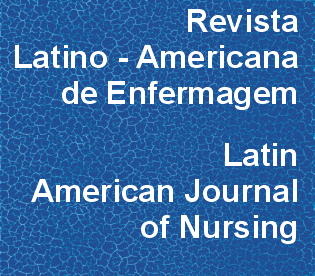The oncologic radiotherapy experience for patients: a poison-drug
DOI:
https://doi.org/10.1590/S0104-11692008000600010Keywords:
neoplasms, radiotherapy, anthropology, cultural, culture, nursingAbstract
The study aimed at understanding the patients' experience with oncologic radiotherapy. The anthropological interpretative approach and the ethnographic method guided the investigation. Ten patients took part in the study. They were of both genders, within the age range from 34 to 80 years old and monitored during radiotherapy treatment. Data were collected through semi-structured interviews, participative observation and medical records. The analysis of the respondents' statements allowed for the identification of the units of meaning: The encounter with radiotherapy, the body as a vehicle for radiotherapy action and alternative healthcare practices that relieved the effects of the treatment. We understand that the oncologic radiotherapy experience meant the need to submit to a therapy with a characteristic of a poison-drug, which causes fear, but was necessary, whether the goal was cure or even cancer survival.Downloads
Download data is not yet available.
Downloads
Published
2008-12-01
Issue
Section
Original Articles
License
RLAE’s authorship concept is based on the substantial contribution by each of the individuals listed as authors, mainly in terms of conceiving and planning the research project, collecting or analyzing and interpreting data, writing and critical review. Indication of authors’ names under the article title is limited to six. If more, authors are listed on the online submission form under Acknowledgements. The possibility of including more than six authors will only be examined on multicenter studies, considering the explanations presented by the authors.Including names of authors whose contribution does not fit into the above criteria cannot be justified. Those names can be included in the Acknowledgements section.
Authors are fully responsible for the concepts disseminated in their manuscripts, which do not necessarily reflect the editors’ and editorial board’s opinion.
How to Cite
The oncologic radiotherapy experience for patients: a poison-drug. (2008). Revista Latino-Americana De Enfermagem, 16(6), 998-1004. https://doi.org/10.1590/S0104-11692008000600010



